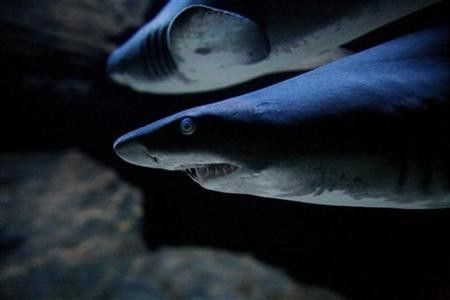Australians Not in Favour of Killing Sharks, Prefer Public Education Over Shark Cull

As Western Australia continues to catch and kill sharks using baited drumlines, the results of a survey by Sydney Aquarium is contradicting the state's stand on sharks.
The shark cull in Australia is the biggest campaign to slaughter marine animals in the world. However, a survey reveals that Australians are not afraid of the sharks in their beaches like the state. Among the 583 people who came to Sea Life Sydney Aquarium, 77 per cent replied that they were "not at all frightened" or "moderately frightened" by sharks in their oceans.
Unlike the supporters of the shark cull policy, 87 per cent of the respondents said sharks should not be killed despite posing a threat. Sea Life Conservation Fund released the results of the survey. Respondents' age ranged from 5 to 75 years old.
Majority or 69 per cent chose public education as the best way to prevent shark attacks, while 18 per cent said sharks should not be bothered and left alone.
Christopher Neft, University of Sydney lecturer and shark expert, said Western Australia assumes that the public is afraid of sharks. Mr Neft said the government "reacts emotionally" and looks for an immediate response when shark bites happen. However, this view of government refutes public perception.
According to data, there have been 892 records of sharks attacking people in Australia since recording began in 1791. Out of 892, only 217 turned out to be fatal. In 2013, 10 shark attacks and two human deaths were reported based on the International Shark Attack File by the University of Florida.
Four per cent of the people surveyed supported the shark cull, while 9 per cent wanted more shark nets in beaches.
For Mr Neft, the fear of sharks may be reduced if they can visit Shark Valley, the glass tunnel in Sydney Aquarium. Visitors can see sharks swimming close up. According to Mr Neft, the survey only shows that public education makes a difference in the way people see sharks.
Western Australia has moved to extend its shark cull policy by three years. The state is asking for the shark cull to continue for three years between Nov 15 and April 30, starting in 2014. The continuation of the shark cull will allow Western Australia to catch and kill any tiger, bull or great white shark longer than 3 metres caught. Sharks that meet the minimum size requirement are shot before throwing its carcasses farther out at sea.





















